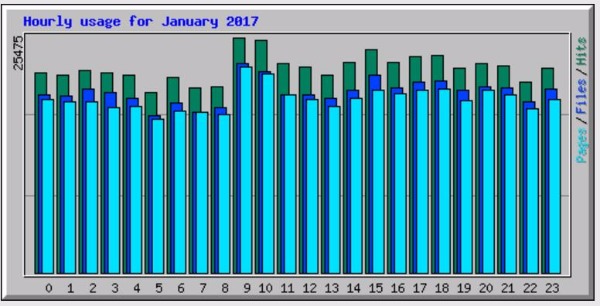 I was eager to check all my blog statistics this month because I had calculated that the numbers would trip my blog odometer over to a big number. I keep a spreadsheet for the 8 blogs where I write online. I don’t keep track of stats for my Tumblr or Facebook, Twitter, Instagram or any of the other social sites I use. And I don’t obsess over the numbers month to month because I don’t get any income from people just viewing a page. I am curious about which posts got the most attention because it gives me some insight into what people want to read.
I was eager to check all my blog statistics this month because I had calculated that the numbers would trip my blog odometer over to a big number. I keep a spreadsheet for the 8 blogs where I write online. I don’t keep track of stats for my Tumblr or Facebook, Twitter, Instagram or any of the other social sites I use. And I don’t obsess over the numbers month to month because I don’t get any income from people just viewing a page. I am curious about which posts got the most attention because it gives me some insight into what people want to read.
Looking at the total page hits for the eight blogs over their lifetimes, the number has now crossed the 100,000,000 mark.
That’s one hundred million page hits, which doesn’t mean there were that number of “unique visitors.” It is safe to assume that many of those hits come from the same people – and that’s a great thing. Blogs get subscribers and followers who are usually notified of new content and who, hopefully, come back to read more of your posts.
That number – 100,000,000 – sounds like the population of a country – my own little country of blogs. My blog country is a bit smaller than the 12th largest, the Philippines at 107,668,232, but we are bigger than Ethiopia (96,633,456) and Vietnam (93,421,832). Sure, we are only half the population of Brazil (202,656,784) and Pakistan (196,174,384), but everyone in Austria (8,223,062) could visit the site a dozen times each to get us to 100,000,000.
One of my blogs, Weekends in Paradelle, has a largely North American readership, but the UK, Germany, France and India account for about 25 percent of visitors to this particular blog.
But my most oldest and most read blog is this one, Serendipity35. I have been writing about technology and education here since 2006, so it has a head start on the other blogs. It pulls in about a half million hits every month (532,468 in January and 859,860 in December 2016) and accounts for 97 million of those hits.
 Serious bloggers look at when people access their blog and then try to post in that time period. For Serendipity35, which has a much wider global audience than the Weekends in Paradelle blog, there is no “hot” hour. People are dropping by here all day and night from somewhere as the graph here shows.
Serious bloggers look at when people access their blog and then try to post in that time period. For Serendipity35, which has a much wider global audience than the Weekends in Paradelle blog, there is no “hot” hour. People are dropping by here all day and night from somewhere as the graph here shows.
It’s nice to know there is a country of visitors out there.

 I was eager to check all my blog statistics this month because I had calculated that the numbers would trip my blog odometer over to a big number. I keep a spreadsheet for
I was eager to check all my blog statistics this month because I had calculated that the numbers would trip my blog odometer over to a big number. I keep a spreadsheet for  It's a dream/fantasy of many bloggers: that their blog can become a book - or maybe even a movie. I've thought about it, and I wrote a post about the idea on another blog of mine this month. Here is a version of that post:
It's a dream/fantasy of many bloggers: that their blog can become a book - or maybe even a movie. I've thought about it, and I wrote a post about the idea on another blog of mine this month. Here is a version of that post: In 2007, a film version was announced - the first major motion picture that started off as a blog.
In 2007, a film version was announced - the first major motion picture that started off as a blog.